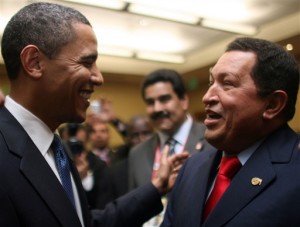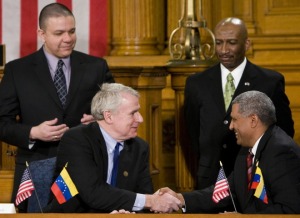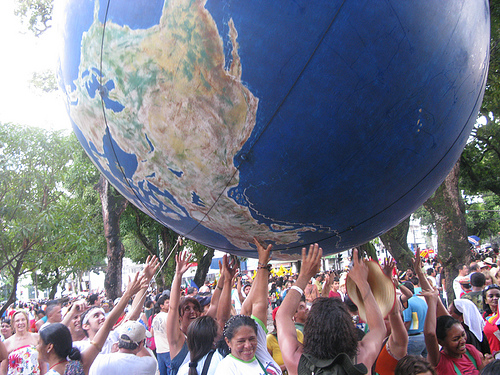

Venezuelans can now buy cell phones for the equivalent of just US $13.95, thanks to a new state-run company that put its first 5,000 units on the market yesterday in Caracas.
Eager shoppers snapped up the first bunch, and the AP reports that another 5,000 will be in stores soon.
The tiny phone, dubbed “El Vergatario,” is equipped with a camera, radio, and mp3 player.
The firm that makes them, a joint venture by the governments of Venezuela and China, is known as Vetelca. This is not an isolated effort, but rather, part of a broader plan to promote affordable technology (you may recall the “Bolivarian Computer,” and the adoption of open-source Linux operating systems).
“El Vergatario” is only sold on the domestic market right now, but depending on its success, it could eventually become an export. And because it is literally the cheapest cell phone in the world, it is likely to be quite competitive.




 Yesterday, March 8th, was recognized by countries around the world as International Women’s Day. In Venezuela, there were many achievements to celebrate as well as challenges ahead.
Yesterday, March 8th, was recognized by countries around the world as International Women’s Day. In Venezuela, there were many achievements to celebrate as well as challenges ahead.



 Oliver Stone and crew have been hard at work on a documentary about the Venezuelan Revolution, starring President Chavez and “huge cast of characters.” According to Stone, Chavez is a “world changer” full of “intoxicating” energy. The film will explore the progress he has inspired in Venezuela and the region.
Oliver Stone and crew have been hard at work on a documentary about the Venezuelan Revolution, starring President Chavez and “huge cast of characters.” According to Stone, Chavez is a “world changer” full of “intoxicating” energy. The film will explore the progress he has inspired in Venezuela and the region. UNESCO’s Institute of Statistics says that Venezuela has the second-highest rate of university enrollment in Latin America. At 83% enrollment, Venezuela is second only to Cuba, and far above the regional average of just 30%,
UNESCO’s Institute of Statistics says that Venezuela has the second-highest rate of university enrollment in Latin America. At 83% enrollment, Venezuela is second only to Cuba, and far above the regional average of just 30%, 
